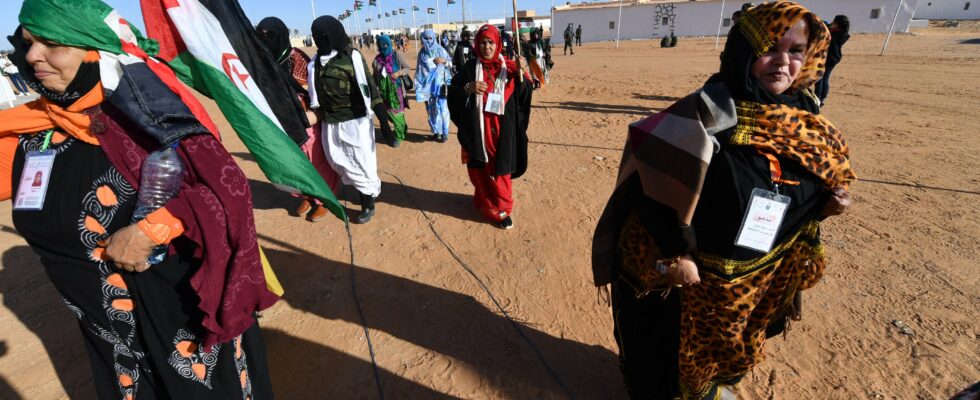On February 25 and 26, 2024, Stéphane Séjourné is in Rabat. The French Minister of Foreign Affairs is due to meet with his Moroccan counterpart, who has high expectations. He hopes that France, through the voice of its head of diplomacy, will take a step forward towards the recognition of Western Sahara, this former Spanish colony that has been disputed for several decades by Morocco and the Polisario Front, a Sahrawi independence movement supported by Algeria.
But the sequence dampened the hopes of the Cherifian kingdom. “Morocco-France: a visit that fizzled out”, mocked the local magazine. As is. However, in front of the press, Stéphane Séjourné promises to “personally” ensure that “this existential question for Morocco” moves forward. Remarks deemed timid by Moroccans but which, a few months later, have still not been digested in Algeria. This Thursday, July 24, the government indeed issued a strong statement against Paris.
A “decision” still unknown
“The Algerian Government has learned with great regret and deep disapproval of the unexpected, inopportune and counterproductive decision of the French government providing unequivocal and unqualified support for the autonomy plan for Western Sahara within the framework of Moroccan sovereignty,” said the Ministry of Foreign Affairs and National Community Abroad.
Through this press release, the Algerian government suggests that Emmanuel Macron could act during a visit to Morocco next December on the evolution of the French position on the question of Western Sahara. And perhaps even “to give its support to the autonomy plan proposed by Morocco for the Sahara”. This is in any case what the online newspaper interprets Hespress, which is titled: “France supports the Moroccanness of the Sahara, Algiers fulminates”. When contacted by our colleagues at AFP, the Quai d’Orsay did not respond.
Moroccan veto on self-determination referendum
The issue of Western Sahara is sensitive and has been a parasite on Algerian-Moroccan relations for several decades. In its press release published this Thursday, Algiers criticizes in particular the “colonial powers, old and new, (who) know how to recognize each other, understand each other and lend each other a helping hand”. A way of attacking both France and Morocco, which claims sovereignty over this territory that the kingdom refers to as its “southern provinces”, which became independent after the decision of the International Court of Justice in The Hague in 1975.
Rabat controls nearly 80% of this territory. The Polisario Front, which has taken refuge in the Tindouf camps in western Algeria, is campaigning for a self-determination referendum to lead to the creation of a “Sahrawi Arab Democratic Republic” (SADR). Last October, a UN Security Council resolution approved the extension of the United Nations Mission for the Referendum in Western Sahara (MINURSO).
Behind the symbolic dimension, economic interests
And if Morocco was “initially” in favor of organizing a “referendum on self-determination for the Sahrawi people”, it is “today at the point where it no longer even wants to hear about it”, summarizes in a report commission of the United Nations. On the contrary, the kingdom of Mohammed VI has an “autonomy plan for Western Sahara”, with the aim of retaining sovereignty over the independent territory.
Among the main points of this document, Rabat undertakes to guarantee “to all Sahrawis, inside and outside, their full place and role, without discrimination or exclusion, in the organs and institutions of the region”. And promises through democratic self-management of the affairs of Western Sahara, while retaining “its sovereign powers in the sovereign domains, in particular Defense, external relations and constitutional and religious powers”.
In addition to the highly symbolic dimension, Morocco clings to a land whose subsoil is known for its phosphate wealth. The maritime surroundings also provide the kingdom with significant fishing resources. Not to mention the desert expanses, which allow it to develop military activity on site. In 2021, the kingdom notably organized the joint African Lion exercises led by the United States in Western Sahara.
